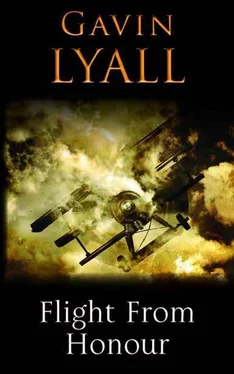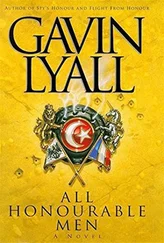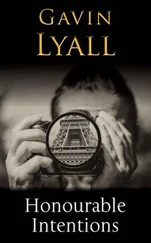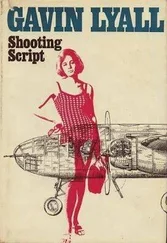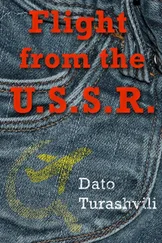Gavin Lyall - Flight From Honour
Здесь есть возможность читать онлайн «Gavin Lyall - Flight From Honour» весь текст электронной книги совершенно бесплатно (целиком полную версию без сокращений). В некоторых случаях можно слушать аудио, скачать через торрент в формате fb2 и присутствует краткое содержание. Год выпуска: 2013, Издательство: PFD Books, Жанр: Шпионский детектив, Исторический детектив, на английском языке. Описание произведения, (предисловие) а так же отзывы посетителей доступны на портале библиотеки ЛибКат.
- Название:Flight From Honour
- Автор:
- Издательство:PFD Books
- Жанр:
- Год:2013
- ISBN:нет данных
- Рейтинг книги:4 / 5. Голосов: 1
-
Избранное:Добавить в избранное
- Отзывы:
-
Ваша оценка:
- 80
- 1
- 2
- 3
- 4
- 5
Flight From Honour: краткое содержание, описание и аннотация
Предлагаем к чтению аннотацию, описание, краткое содержание или предисловие (зависит от того, что написал сам автор книги «Flight From Honour»). Если вы не нашли необходимую информацию о книге — напишите в комментариях, мы постараемся отыскать её.
Flight From Honour — читать онлайн бесплатно полную книгу (весь текст) целиком
Ниже представлен текст книги, разбитый по страницам. Система сохранения места последней прочитанной страницы, позволяет с удобством читать онлайн бесплатно книгу «Flight From Honour», без необходимости каждый раз заново искать на чём Вы остановились. Поставьте закладку, и сможете в любой момент перейти на страницу, на которой закончили чтение.
Интервал:
Закладка:
“Sorry about that. I’ll remind them. Did you have a good crossing?”
“Wasn’t exactly a storm.” That probably meant a flat calm; O’Gilroy was a dedicatedly bad sailor.
“Any trouble in Brussels?”
“The feller was right about having problems. Near had a nasty accident with an aeroplane.”
“An aeroplane?” How on earth . . . But the telephone system wasn’t private enough for explanations. “Was anybody hurt?”
“Nobody we know. I thought it was mebbe in the papers.” Come to think of it, Ranklin had noticed a small item about a fatal aeroplane crash in Brussels. But he hadn’t read more – it was a common enough headline – and certainly hadn’t connected it with O’Gilroy’s work.
“Anyway, you’re back. Which hotel are you at?”
“The Ritz.”
“The Ritz? Good Lord, with dinner, that could cost him a pound a night.”
“I’m thinking he’d never notice.”
“Then I don’t suppose you’re in any hurry to leave, but I’ll get on to the Yard anyway. Come back here when you’re relieved.”
“Thanks, Matt. I’ll say goodbye, then. Goodbye.”
Ranklin hung up, thinking: It’s unfamiliarity with telephones that makes O’Gilroy sound so stilted, but can it be the electricity that somehow emphasises his accent? If so, and you had somebody whose English was good but you suspected he was foreign, then perhaps . . . Then he shook his head and asked the girl to get him through to Scotland Yard.
He got back to the agents’ office just as the meeting was breaking up and went up to apologise to Dagner, who waved it aside. “You didn’t miss anything. Was it important?”
“It was O’Gilroy-”
“Ah, our wild Fenian boy.”
“- and Scotland Yard losing its notebook. I wouldn’t call him a Fenian.”
“I’m looking forward to meeting him. I heard you captured and tamed him yourself single-handed, on a mission to the Irish jungle. Come in and tell me a little about him – and yourself.” He led the way and sat at the Commander’s table, which briefly startled Ranklin. Yet in the Army, when the CO moved out, his number two moved in; logical and sensible. Perhaps it was that the room was so personal to the Commander, cluttered with gadgets, maps and his display case of pistols – everything except paperwork.
Dagner clearly didn’t believe in paperwork either, because he didn’t consult any before saying: “I understand that, a year ago, you joined the Greek Army’s artillery and fought in the Salonika campaign. How did that come about? – and was it why the Chief recruited you?”
By now, Ranklin could recite his recent past in the flat tone of someone reading an engineering manual. “I had to resign my commission here because I was about to go bankrupt. Nothing dramatic, just that my brother made a mistake in the stock market and I’d guaranteed him. And the only thing I know about is the Guns, so I looked around for the nearest war. I went to Greece because – the English always side with the Greeks, don’t they? Byron and so on. It’s probably the classical education. The Commander had me brought back and made an arrangement with my creditors and had me reinstated here.”
He was curious to see if Dagner acknowledged that recruitment as pure blackmail and what it said about the finest secret service in the world. But he made no comment. Presumably the Commander would have told him most of it anyway, so perhaps he just wanted to know how it looked from Ranklin’s side. He nodded. “You must tell me more about that campaign one day. Now, how about O’Gilroy?”
“He was in the infantry for ten years, took his discharge as a corporal. I first met him in South Africa, when we were bunged up in Ladysmith – in the siege. Then I ran into him again in Ireland when he was certainly working for the Fenians or something like them. That ended with him killing one of them, his own nephew, actually, and he became rather non grata over there. I think the Commander took him on because he thought his experience – of outwitting us, I suppose – would be useful.”
It did no harm to emphasise that it had been the Commander’s decision. And there was more to the story than that, but that was for O’Gilroy to tell, if he chose.
Dagner nodded again. “There’s nothing like secret service work for breeding myths and legends. I wonder if it’s that we’re the last place that isn’t swamped with paperwork? If they’d had paper and typewriting machines in Ancient Greece we’d never have heard of their gods and heroes, just their orders of the day and ration returns. D’you trust him?”
“I do.”
When Ranklin didn’t say any more, Dagner asked: “Could he tell our counter-intelligence people anything useful about his erstwhile colleagues in Ireland?”
“‘Could’ I don’t know. Certainly he didn’t.”
Dagner raised his eyebrows gently. “And you trust him.”
“I do tend to trust a man who refuses to betray his friends.”
“Yes.” But it was another meaningless sound and Ranklin sensed that Dagner was shelving rather than concluding the topic. “Now, to the rest of our flock: what do you make of the new boys?”
“So far, no more than what their CR’s tell us. If there’s a common denominator, it’s that they all started off as go-getters-” He saw Dagner’s puzzlement at the American slang and made a hasty revision; “-recommended for accelerated promotion, then something got lost along the way. Two of them were down to ‘delayed promotion’ by the end. Collectively, I’d say their last CO’s were only too glad to be rid of them.”
“Quite,” Dagner agreed. “Not exactly the cream of the crop.”
“In the British Army – I don’t know about the Indian – you won’t get the best regimental officers volunteering for Intelligence work. No promotion, no medals.”
“We certainly don’t want glory-hunters . . . But at least they volunteered.”
Ranklin said nothing. Army interpretations of the word “volunteer” would fill a lexicon. Technically, he himself had volunteered. Dagner continued: “The trouble is, I haven’t your experience of command, of bringing up young officers. I was working so much by myself. So I may be no judge . . . But they seem bright enough.”
Ranklin nodded. “And they’re what we’ve got.”
“Quite. Now – I’d better know what’s going on. What was O’Gilroy doing in Belgium?”
“He was in Brussels looking at some documents – technical drawings – a commercial firm of spies had offered for sale. And some Italian senator who was coming to a meeting at our Foreign Office had gone to our embassy there and said he thought his life was in danger and could he have an armed escort? They asked us, and O’Gilroy was free, so he took it on. I gather that there was an incident, but this was on the telephone . . .”
“So the Foreign Office can occasionally find a use for us . . . May I assume they’ll be told the job was properly carried out? Good. But did you say a firm of commercial spies?”
Yes, Ranklin realised, that must sound a bit odd. I accept them because they were there when I came into this business and everything seemed odd. “You find such people, particularly in Brussels and Vienna, buying and selling secrets. Really, it’s no more than a formal version of the informers you probably had in the bazaars at Peshawar and Lhandi Kotal. Some are better than others, of course, but they are useful on the technical side, now we seem to be living in an age of Secret Weapons. What with submarines and torpedoes and mines and all sorts of flying machines, it’s risky to disbelieve anything.”
“Or, of course, believe too much of it,” Dagner said thoughtfully.
Читать дальшеИнтервал:
Закладка:
Похожие книги на «Flight From Honour»
Представляем Вашему вниманию похожие книги на «Flight From Honour» списком для выбора. Мы отобрали схожую по названию и смыслу литературу в надежде предоставить читателям больше вариантов отыскать новые, интересные, ещё непрочитанные произведения.
Обсуждение, отзывы о книге «Flight From Honour» и просто собственные мнения читателей. Оставьте ваши комментарии, напишите, что Вы думаете о произведении, его смысле или главных героях. Укажите что конкретно понравилось, а что нет, и почему Вы так считаете.
